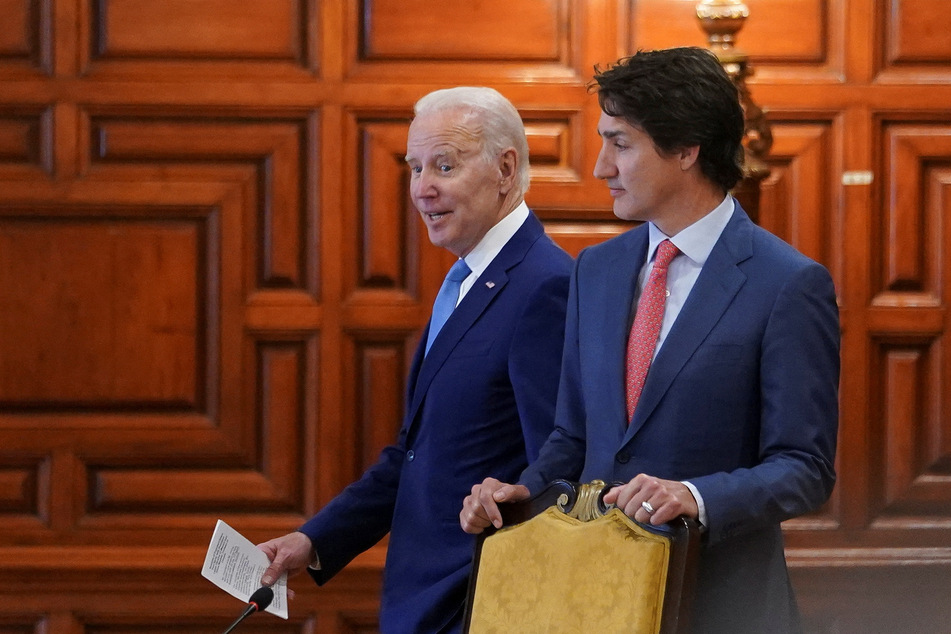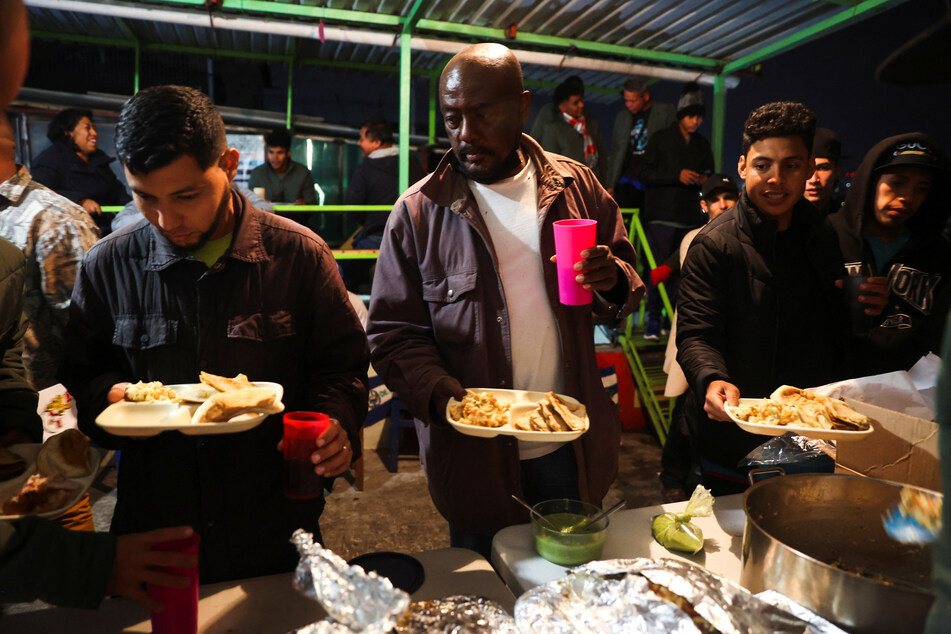Biden and Trudeau discuss Haiti’s "instability" at Mexico City summit
Mexico City, Mexico - The ongoing instability in Haiti became a focal point of discussions Tuesday between US President Joe Biden and Canadian Prime Minister Justin Trudeau as the two kicked off a North American leaders summit in Mexico City.

The summit debuted on the same day that Haiti found itself out of constitutional order with no elected leaders, after the mandate of its last remaining senators expired as of midnight on Monday.
Haiti’s interim government, led by Prime Minister Ariel Henry, has asked the United States and others in the international community to support the deployment of troops to assist the country’s beleaguered police force in getting humanitarian relief through gang-controlled areas.
The United States, which doesn’t want to send its own military in, has agreed to support the request. Along with Mexico, the United States penned a resolution at the UN Security Council calling for the quick deployment of an outside protection force to Haiti.
Three months later, there has been no movement and no indication that a multinational force is in the offing. Canada, which has been approached by the Biden administration to lead such a force, also has not shown any public willingness to move ahead.
Instead the Ottawa government has focused on issuing economic sanctions against Haitian politicians and business leaders it believes are behind the gang warfare, while calling for a broad political agreement among the country’s political and civil-society leaders.
Biden issues controversial new border policy

In a statement, the White House said Tuesday that Biden and Trudeau committed to continue coordination with partners on the UN Security Council on next steps to address "instability in Haiti."
"The two leaders committed to continue coordination with partners on the UN Security Council on next steps to support stability to Haiti, including support to the Haitian National Police," the White House said.
"Both leaders also underscored the importance of continued collaboration on migration issues, particularly in expanding legal pathways and increasing refugee resettlement – centerpieces of the Los Angeles Declaration on Migration and Protection," the statement added.
Ahead of the summit, the United States announced a new border policy that calls for the quick expulsion of Haitian migrants and others crossing the US-Mexico border without pre-authorization under the Title 42 public health order. It also launched a new parole program for Cubans, Haitians, Nicaraguans, and Venezuelans seeking to temporarily live in the United States.
Under the parole program, the United States will accept 30,000 immigrants a month from the four countries on a case-by-case basis for a two-year parole into the United States. Beneficiaries will need to meet certain criteria, including having a sponsor in the United States capable of providing them with housing and medical care.
The parole program has received mixed reaction in the Haitian community, with family members elated by the opportunity to bring over relatives after years of being stuck in the US immigration process, and others inundated with calls from people in Haiti wanting to be sponsored. In recent days, so many Haitians have showed up at the immigration office in Port-au-Prince that authorities were forced to close the gates on Monday.
The issue of Haiti is also expected to come up in meetings between both leaders and Mexican President Andrés Manuel López Obrador, who under the new border policy has agreed to take back 30,000 migrants a month who cross into the US without documentation.
Cover photo: REUTERS

